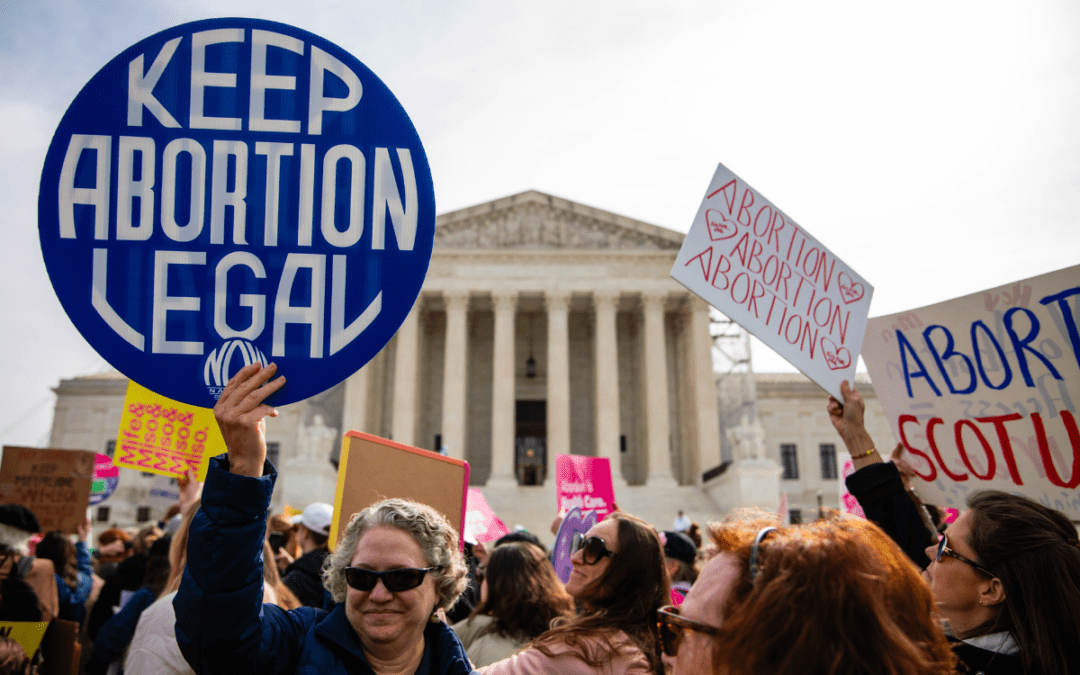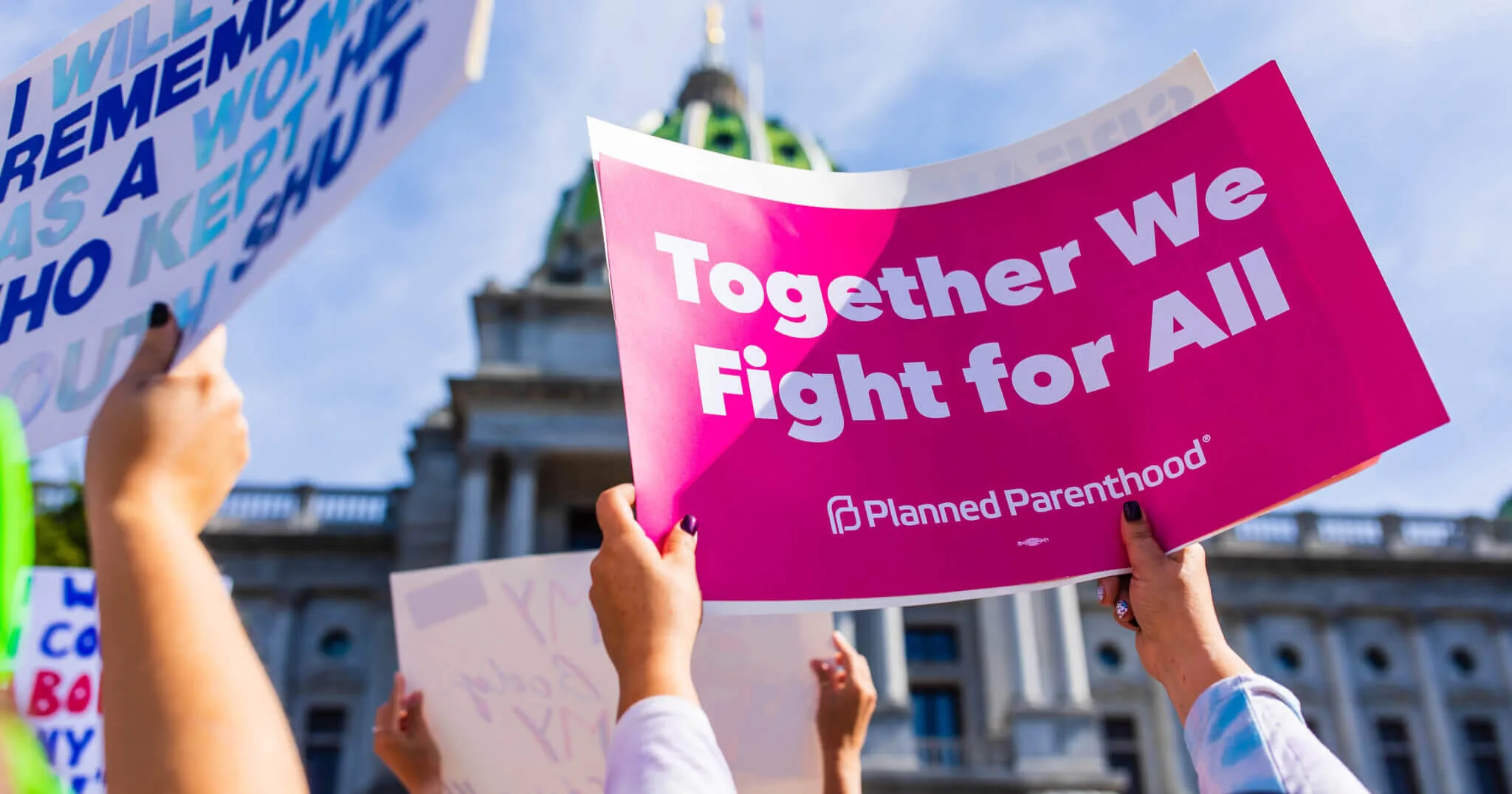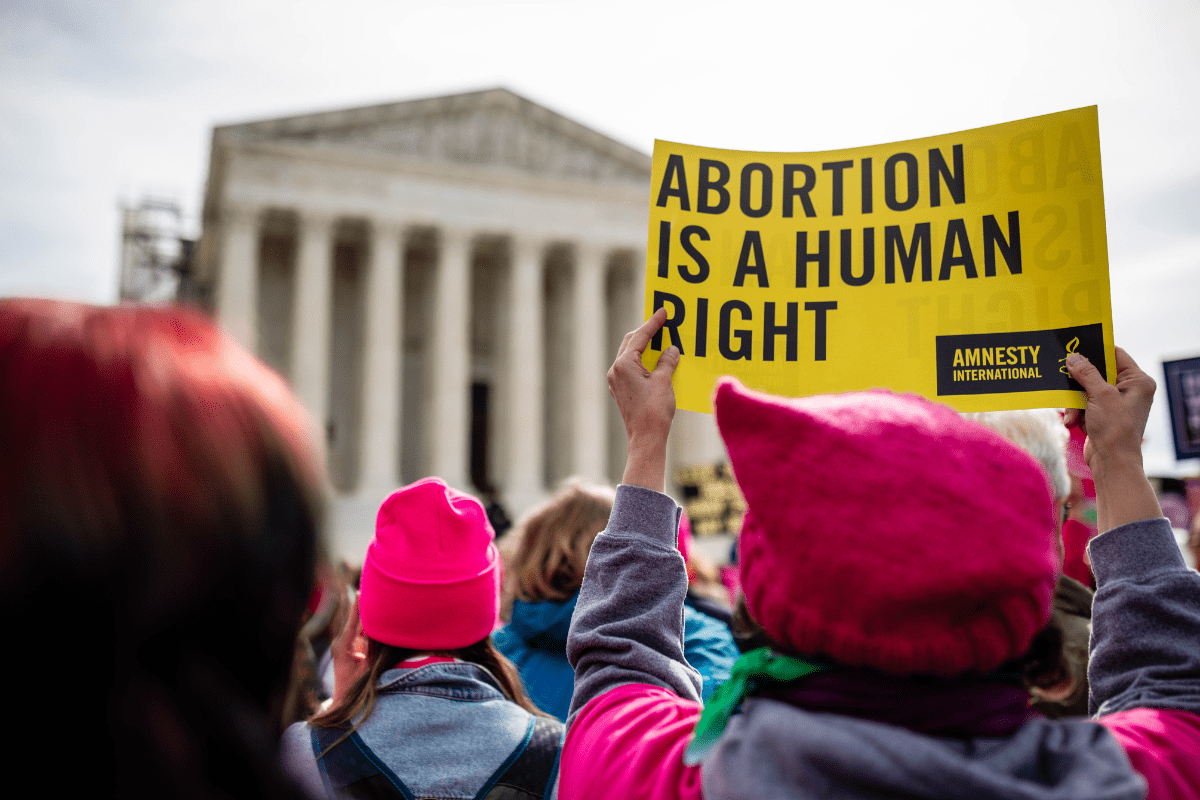
Reproductive rights advocate holding an "Abortion is a human right" sign outside the US Supreme Court on Mar. 26, 2024. (Photo: Sean Kitchen)
Over 100 Philadelphia area residents traveled to Washington DC on Tuesday and joined reproductive rights advocates outside the US Supreme Court as the Court decides whether or not to further restrict abortion access.
Hundreds of reproductive rights advocates rallied outside the US Supreme Court in Washington DC on Tuesday as the court listened to oral arguments on a case that decides the future of mifepristone, the country’s most popular abortion medication.
Tuesday’s hearing marked the first time the right-wing Court has listened to a case relating to abortion access since their decision to overturn Roe v. Wade in the Dobbs decision. This has reproductive rights advocates worried that the Court is about to further restrict abortion access for tens of millions of Americans.
“There is so much going on in our country that it’s imperative to do something,” Ginger Agnew, a Chestnut Hill area resident, said in an interview after arriving at Union Station.
Agnew traveled from the Philadelphia area to Washington DC on a bus that departed from the Plymouth Meeting Mall early on Tuesday, and told The Keystone that she needed a life-saving abortion after having a non-viable pregnancy.
“I actually had to have an abortion for healthcare reasons. I wanted the baby. It wasn’t going to happen, but I lived and I lived to have my third child. So that’s the good thing. It’s healthcare. It’s not abortion, it’s healthcare,” Agnew said.
Over a hundred advocates from the Philadelphia area traveled to DC for the rally outside the Supreme Court on buses provided by Planned Parenthood Pennsylvania and the American Civil Liberties Union of Pennsylvania.
If the Court restricts access to mifepristone later this year, more than 64.5 million Americans will face additional restrictions to abortion care, according to Reproductive Freedom for All. A potential ruling could impact the medication’s distribution, even in states where abortion is legal, and force those seeking abortion to travel to an abortion provider to pick up mifepristone—which, especially in rural areas, could mean a very long trek.
Even though abortion is legal in Pennsylvania, the commonwealth would be one of the top ten states impacted by a potential mifepristone ban according to a study conducted by the Guttmacher Institute.
The share of counties with an abortion provider would drop from 19% to 15% and the share of women of reproductive age living in a county with an abortion provider would drop from 63% to 54%.
Tuesday’s “Bans Off Our Mife” rally was organized by the Women’s March, Planned Parenthood and the ACLU and took place as the Court was hearing FDA v. Alliance for Hippocratic Medicine, which challenges the Food and Drug Administration’s 23 year legal authorization for the medicine.
“Over half of those who’ve had an abortion, choose to do so with medication,” New York Attorney General Letita James said during Tuesday’s rally. “Restricting access to it will weaken our health care, jeopardizing the health of millions and millions of women in this country, and it will hurt the most vulnerable and underserved communities and communities of color.”
If the Court decides to uphold the US 5th Circuit of Appeals’ restrictions placed on mifepristone, the ramifications will go beyond restricting abortion access to tens of millions of people. The case could also change the way the FDA approves prescription drugs and the agency’s regulatory powers.
“I guess it’s taken a second stage in terms of its importance,” Chris Borick, a political science professor at Muhlenberg College, said in an interview. “At least in terms of public attention, those aspects haven’t received as much attention, but they are incredibly important if indeed they upheld the fifth Circuit’s decision.”
This case has the potential to open a pandora’s box and completely undermine the FDA’s approval process for prescription drugs because the case challenges FDA’s decision making process from 23 years ago when it approved the popular drug.
“If the court were to uphold that, it undermines the entire process that the FDA uses for all drugs and really creates a problematic situation in terms of drug approval in the United States,” Borick said.
“Of course the reproductive aspects of this are significant, but the broader implications and precedent that a decision in favor of the plaintiffs in this case would be incredibly important.”
Politics
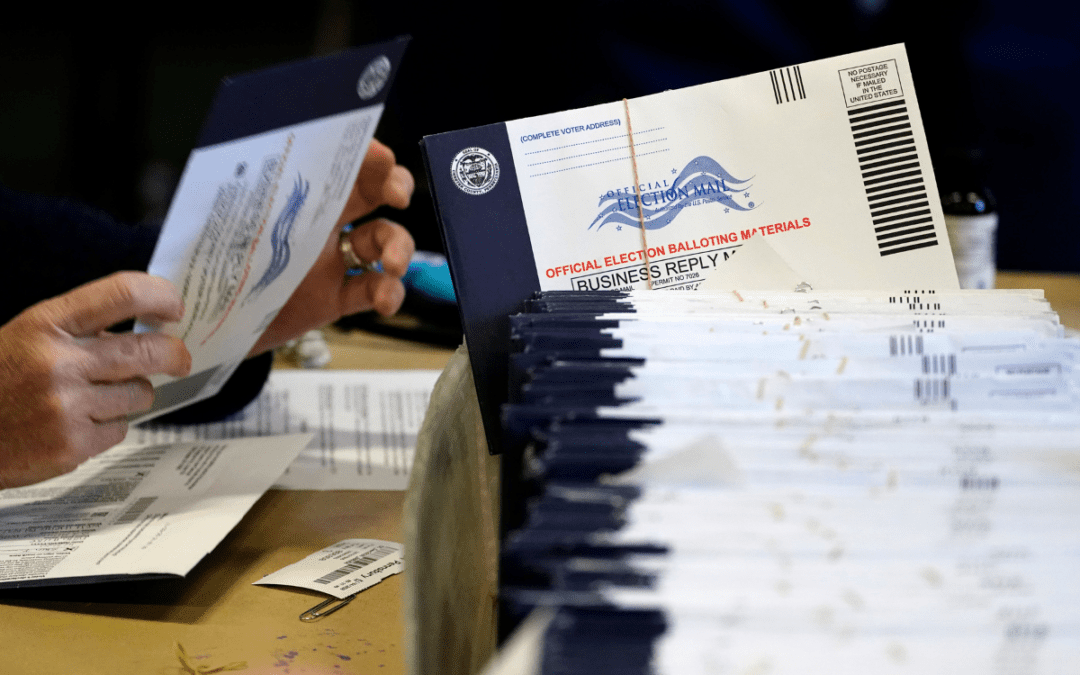
Pennsylvania redesigned its mail-in ballot envelopes amid litigation. Some voters still tripped up
HARRISBURG, Pa. (AP) — A form Pennsylvania voters must complete on the outside of mail-in ballot return envelopes has been redesigned, but that did...

Biden makes 4 million more workers eligible for overtime pay
The Biden administration announced a new rule Tuesday to expand overtime pay for around 4 million lower-paid salaried employees nationwide. The...
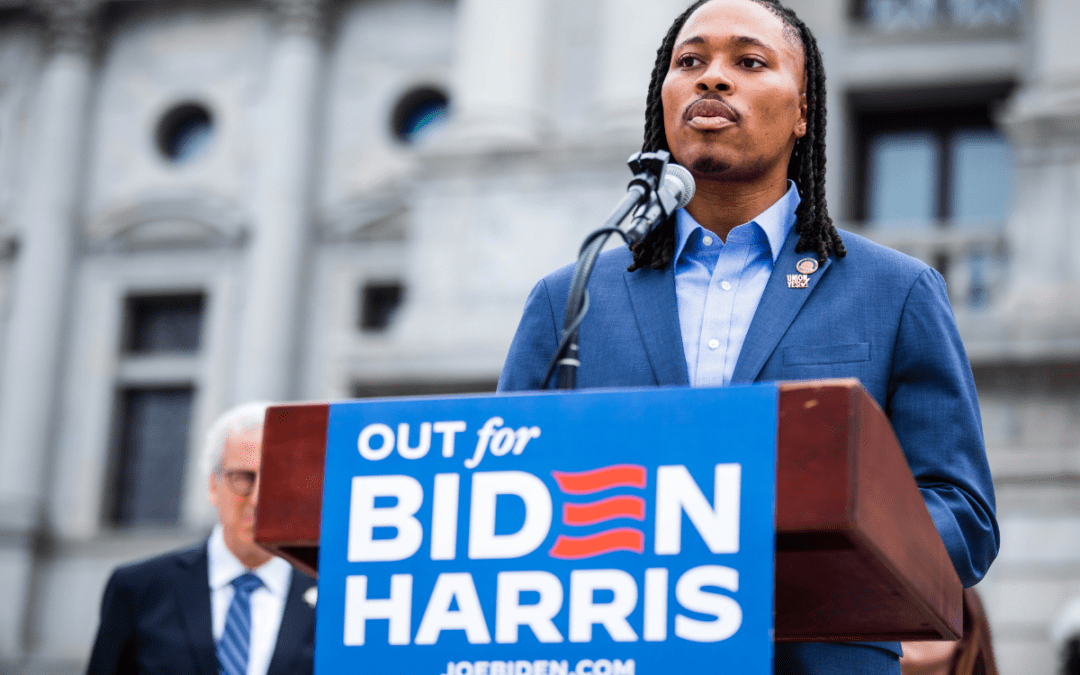
Malcolm Kenyatta makes history after winning primary for Pa. Auditor General
State Rep. Malcolm Kenyatta, who was first elected to the state House in 2018, won the Democratic nomination for Pa. Auditor General and will...
Local News

What do you know about Wawa? 7 fun facts about Pennsylvania’s beloved convenience store
Wawa has 60 years of Pennsylvania roots, and today the commonwealth’s largest private company has more than 1,000 locations along the east coast....

Conjoined twins from Berks County die at age 62
Conjoined twins Lori and George Schappell, who pursued separate careers, interests and relationships during lives that defied medical expectations,...




